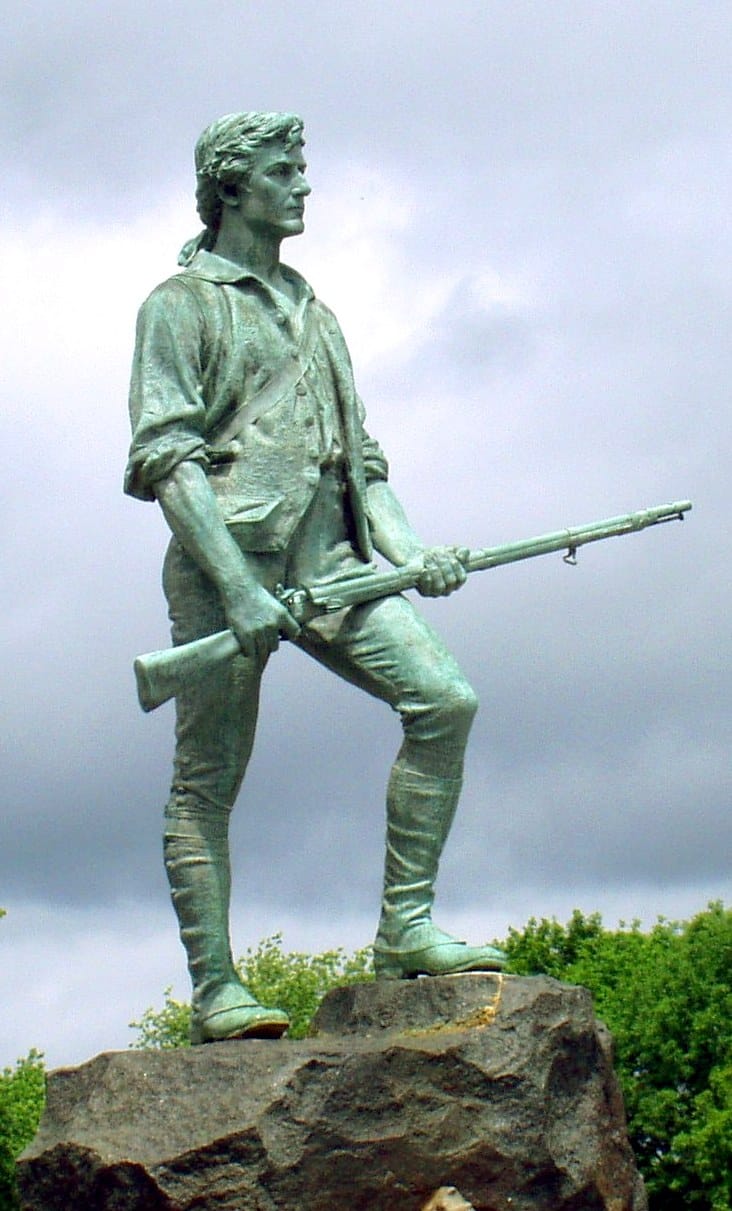Captain John Parker was an important militia commander during the Battles of Lexington and Concord. He was a veteran of the French and Indian War, a farmer, and became an almost mythical character after the Revolutionary War. His leadership helped lead the patriot militia to victory over the well-organized and well-trained British troops commanded by Thomas Gage.

Jump to:
Captain John Parker Facts: Early Life
John Parker was not new to the Massachusetts Bay Colony. His grandfather, Deacon Thomas Parker, was one of the founders of Reading, Massachusetts Bay Colony, and established the Parker family within the colonies. Thomas Parker's son, Josiah Parker, married Anna Stone, who would give birth to John on July 13, 1729.
John Parker would work the land as a farmer in Lexington, Massachusetts Bay, and would get his first taste of military life during the French and Indian War. He fought in the Siege of Louisburg and the Battle of the Plains of Abraham. During this time, he learned a mix of military tactics. He learned to fight like a British soldier, and he also learned the guerrilla warfare of the Indians.
By the time of the Battles of Lexington and Concord, the powerful John Parker was actually dying of Tuberculosis. While there were signs of his physical decline, one would not be able to notice on the morning of April 19, 1775.
Captain John Parker Facts: Lexington Green
On the morning of April 19, 1775, Captain John Parker was alarmed of the British march to Concord by Paul Revere. He assembled his men quickly and gathered them on the Lexington Green. Here, he gave them orders not to fire and to let them pass by unless they were to fire first. This order has been dramatized a bit and was later recalled by one of his men as, "Stand your ground. Don't fire unless fired upon, but if they mean to have a war, let it begin here." Regardless of the right wording, the orders were plain. Captain Parker ordered his men to stay out of the way.
Major John Pitcairn arrived at Lexington first. He had been sent ahead by his senior commander, Francis Smith. He, too, had also been given orders to not engage the provincials. It is unclear as to who fired the first shot. However, there is a compelling argument that the aggressive Pitcairn probably engaged the provincials first. Regardless, nobody knows for sure, and shots were fired. Eight men were killed, including John Parker's cousin Jonas Parker, who was bayoneted in front of him. When Francis Smith arrived at Lexington, he quickly gave orders to stop firing and chastised Pitcairn. The war had begun
Captain John Parker Facts: Parker's Revenge
The British moved onto Concord, where they were pushed back and then began their infamous retreat back to Boston. At every turn, there were new militiamen that were waiting behind the trees. The British took heavy casualties, and their bravery and disciple should be noted because a lesser army would have become chaotic under the intense pressure.
The provincials used an Indian-style tactic where they would strike quickly from hidden positions and then fade away to find another advantageous location to strike. The British sent out their flanking troops to counter this, but throughout the day, they had become tired and were falling behind the main troops.
Parker waited patiently for the British to approach. His men remained concealed and in no danger of being engaged by flanking units that had fallen behind. He allowed Colonel Smith and Captain Parsons to come alongside his concealed location and then opened fire. Colonel Smith was struck in the thigh and thrown from his horse, Captain Parsons was also struck, and many British soldiers fell. The British again reorganized and sent grenadiers after the Lexington minutemen. This all took time, and they were constantly under fire from the men they had run from the field earlier that day. Major John Pitcairn led the charge to drive Parker from the hill, which he did, but not before Parker and his Lexington regiment inflicted much damage on the British.
Captain John Parker Facts: Death and Legacy
Much is remembered about Parker's first encounter with the British, and most people never knew about his second.
John Parker would never see American Independence, and his Tuberculosis would catch up with him 5 months later when he died.
His family continued to play an influencial role in Massachusetts politics. His grandson Theodore Parker was an avid abolitionist prior to the Civil War.
